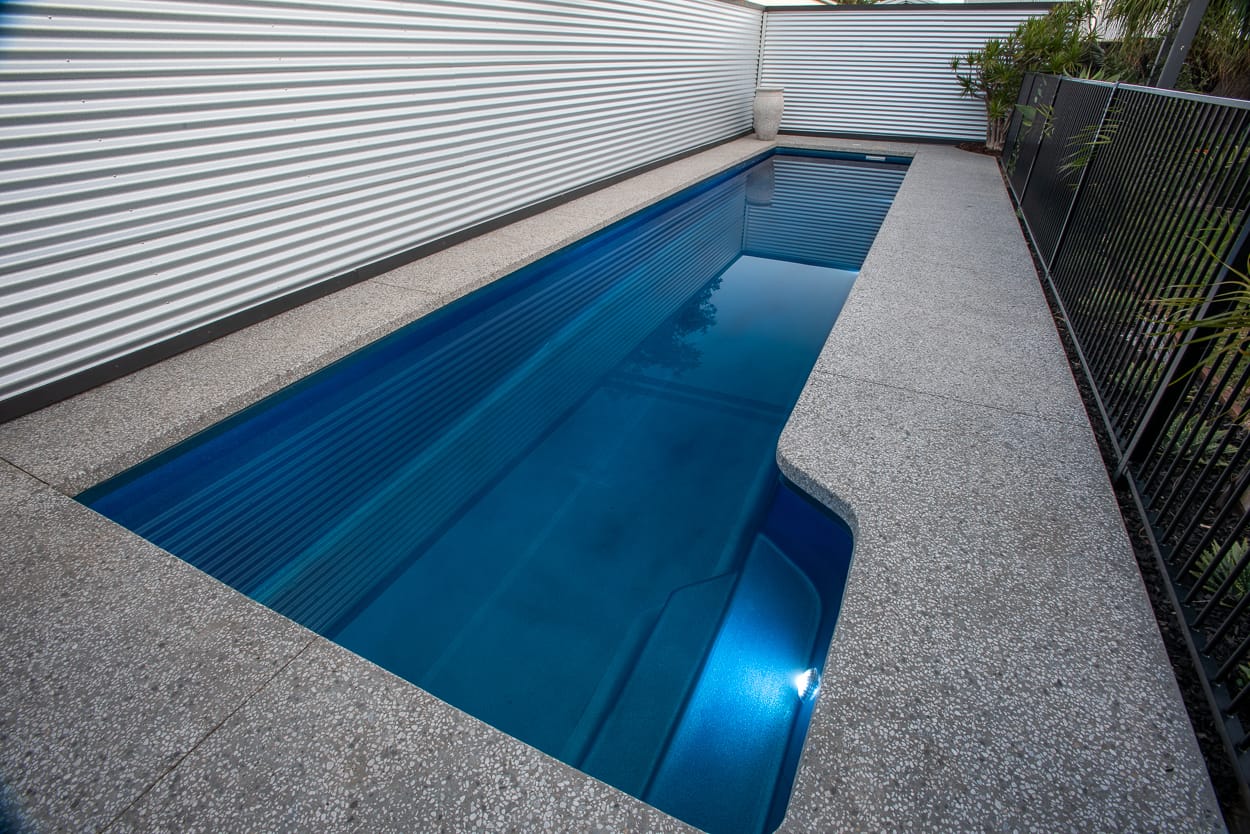Fibreglass Swimming Pools vs Concrete Pools
You will need to make an important choice between concrete and fibreglass swimming pools for your Melbourne property. But how do you determine which type is best for your needs? Let’s weigh up the pros and cons of each.
Fibreglass Swimming Pools
If you’re a person who’s quite time-poor and won’t always be able to commit to regular pool maintenance, then fibreglass pools might be the option for you. They are made with a gel coated surface which is non-porous and restricts the growth of algae. This in turn means you don’t need to spend nearly as much in time and money ensuring the water is safe and clean to swim in. Fibreglass swimming pools are built in a factory in a controlled climate, and are far less affected by the dynamic weather conditions of Melbourne. Installation is relatively quick as well, usually taking between 3 and 5 weeks.
They do have their restrictions, though; particularly when it comes to the size, shape and depth of your pool. Fibreglass pools are limited in their ability to be customised, so if you have an irregularly shaped backyard, the pool might not complement its surroundings as well as you’d like.


Concrete Pools
Popular for their ability to be designed and built in any shape or size, concrete pools are favoured by many Melbourne homeowners looking to add a swimming pool to their property. It’s certainly the strongest type of pool, highly durable, and the great thing is that if you eventually choose to change the backyard, your pool dimensions and even its positioning can change with it! Remodelling, renovating or enlarging the pool is easy.
On the flip side, concrete pools can be more expensive than any other pool type because of their strength, their ability to be customised so easily, and the fact that they’re built on site. This last point means that they’re also the longest to build from scratch – possibly up to 12 weeks from beginning to completion. They also require more sanitising chemicals for the water, because the concrete surface is porous and therefore offers the perfect environment for algae to grow.
Understanding the pros and cons of both concrete and fibreglass swimming pools means that when it comes to choosing between either, you’ll have enough information to make the right decision for you. Of course, you’ll need to also consider factors such as budget, fencing and other safety regulations, as well as the usual running costs of a swimming pool.
